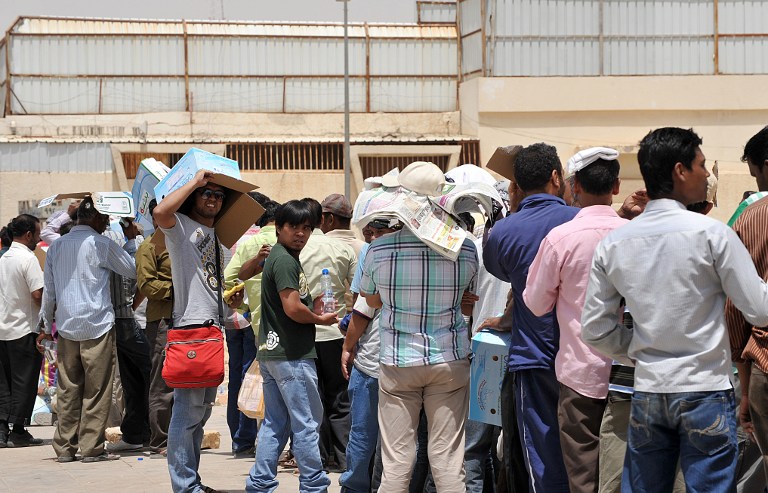SUMMARY
This is AI generated summarization, which may have errors. For context, always refer to the full article.

MANILA, Philippines – In 2012, nearly 10% of the national economy consisted of remittances. Overseas Filipinos (OF) sent home $23.8 billion in that year.
What helped bouy the country’s annual growth was money from migrants who had left home in search of better economic opportunities.
Yet majority of them — almost two-thirds or 64% — remain dissatisfied with the spending behavior of their beneficiaries, attributing this to lack of financial education, according to a study by market research firm Ipsos together with money transfer firm Western Union.
Another study by the central bank showed that of the amount remitted by over 10 million Filipinos abroad in 2012, 46% went to debt payments while 44% were spent on food and education as well as saved. Investments made up a measly 6.8%.
In the same period, 68.5 million out of 93.3 million Filipino adults had no account at a formal financial institution, according to the World Bank.
Financial education
The need for a financial literacy campaign rises with the waves of remittances coming in the country.
Nine out of 10 Filipino migrants believe that financial education has its benefits.
“Our OFW (overseas Filipino workers) deserve their financial freedom considering the blood, sweat and tears they have ‘invested’ while working and living outside the country,” said Imelda Nicolas, Secretary of the Commission on Filipinos Overseas (CFO), during the launch of the financial literacy campaign called “Peso-Sense” on Friday, October 18.
The campaign provides scalable modules for all Filipinos, but specifically both Filipino remitters and recipients.
Based on a 2012 study, the World Bank has affirmed the benefits of teaching both parties.
Target users span students, young professionals, entrepreneurs, blue-collar, skilled and white-collar employees, homemakers and retirees.
Leveraging technology to reach more than a classroom-type audience, the campaign adds the use of social media, sites and audio-visuals to its distribution of traditional media such as brochures.
The Western Union Foundation, the money transfer firm’s philanthropic unit, has pledged $220,000 to fund the program.
CFO and the United Nations Development Programme (UNDP) Philippines are co-implementors of the campaign.
Leveraging remittances
The government, private sector, inter- and non-governmental groups all agreed in leveraging remittances as a tool for better, more inclusive growth. (READ: Philippine economy can’t do without OFW remittances)
Remittances will enlarge the middle class and change governance, said BSP Monetary Board Member Felipe Medalla, as he flashbacked on what the middle class did as a response to the national scandals borne out of PDAF misuse.
Enlarging the middle class means uplifting the economic situation of those mired in poverty.
“Growth becomes inclusive when the poor participate in the growth process and share the benefits. With financial literacy, this participation in the growth process can become a reality as the poor develop their capacity to save and invest,” said Toshihiro Takanaka, UNDP Philippines’ country director.
Regarding inclusiveness, we start with the small ones, Medalla noted.
“[We start] by improving remittances, making remittances fast, safe and cheap, and educating people so that they will take better care of their hard-earned money,” he added. – Rappler.com
Add a comment
How does this make you feel?
There are no comments yet. Add your comment to start the conversation.